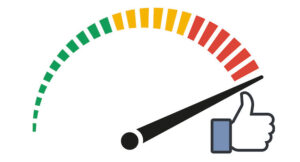 In a fast paced world, where everyone is connected at all times, despite where they are in the world, internet speed is a big thing, as is connection and web page speed.
In a fast paced world, where everyone is connected at all times, despite where they are in the world, internet speed is a big thing, as is connection and web page speed.
Facebook has announced its latest update, and the speed of your web page could impact your feature on placement on News Feeds.
All social media platforms are constantly changing, expanding and updating. And play a massive role in 21st century business building and networking.
Lets face it, its not what you know, its who you know. And Facebook is a massive contributor to building client bases and expanding businesses to wider and unlimited markets.
Facebook has announced it will be making changes to the current News Feeds that will increase the distribution of links to faster loading web pages! So if your web page is fast loading you can expect to be featured more heavily and higher up on News Feeds.
That’s always good news. Current network connection and speed of the corresponding web page will be considered. However, Facebook has said that the changes will negatively effect pages who’s links load more slowly!
That said, the speed of web page loading is not said to guarantee a higher place in the News Feeds, as a slower load is not said to cause a lower feature.
Facebook did not directly state that faster web pages would be favoured. The speed of the web page is only one factor taken into consideration. The update is also speculated to only be impacting the mobile app!
So the impact of the update may not hinder nor improve your web page placement. But, could be beneficial should you have good web page speed and connection.
The update is said to take place gradually in the coming months. This is enough time to consider how the update will effect your own business or brand.
The impact may not be huge. But its worth visiting the speed of your website, and making any changes to the speed where necessary.
 So, how do you do that and what tools are there to test your website speed?
So, how do you do that and what tools are there to test your website speed?
According to Facebook, web pages with as little as a 3 second delay can be detrimental to business. They recommend a number of things to help ensure a speedy user experience:
– Minimising landing page redirects, plugins and link shorteners
– Compressing files to decrease mobile rendering time
– Improving server response time by utilising multi-region hosting
- Using a high-quality content delivery network to reach audiences quickly
- Removing render-blocking JavaScript
That’s all well and good, but how do you test your website speed? How do you know how long your users have to wait for loading? Simple:
- Google page speed (https://developers.google.com/speed/pagespeed/)
Awesome tool for checking how your site is performing.
If you need help with improving your website speed send us a message and we will be in touch!


